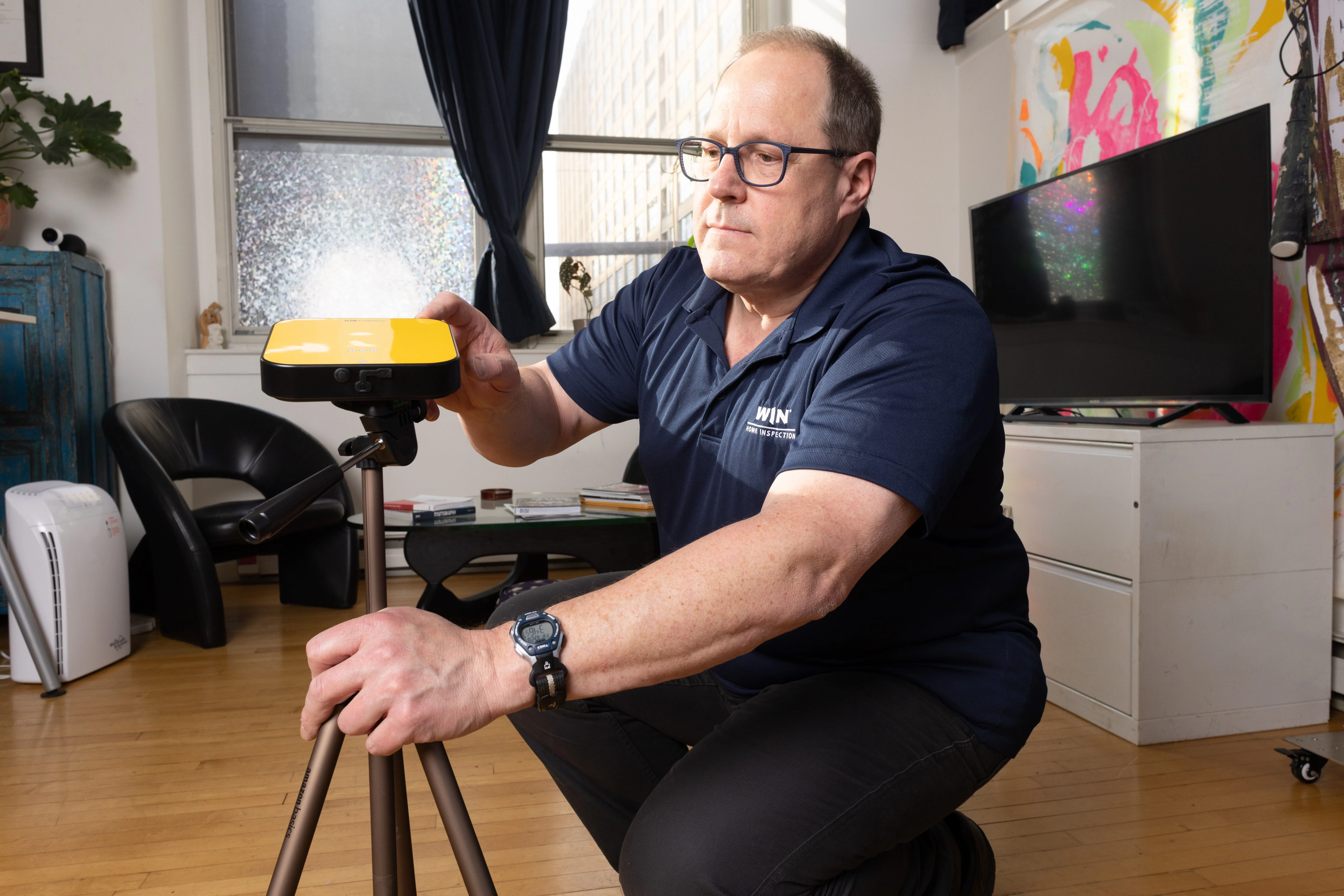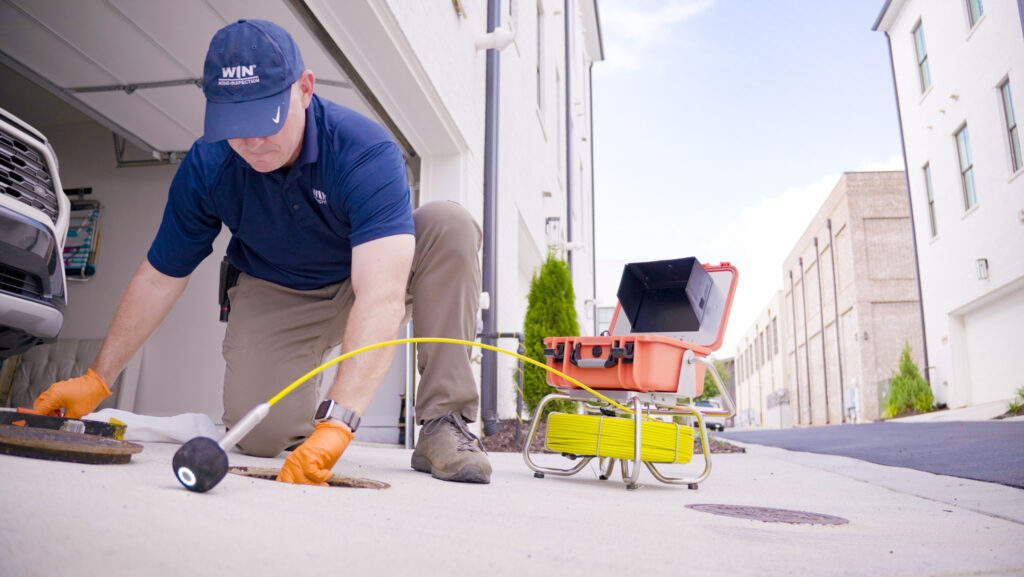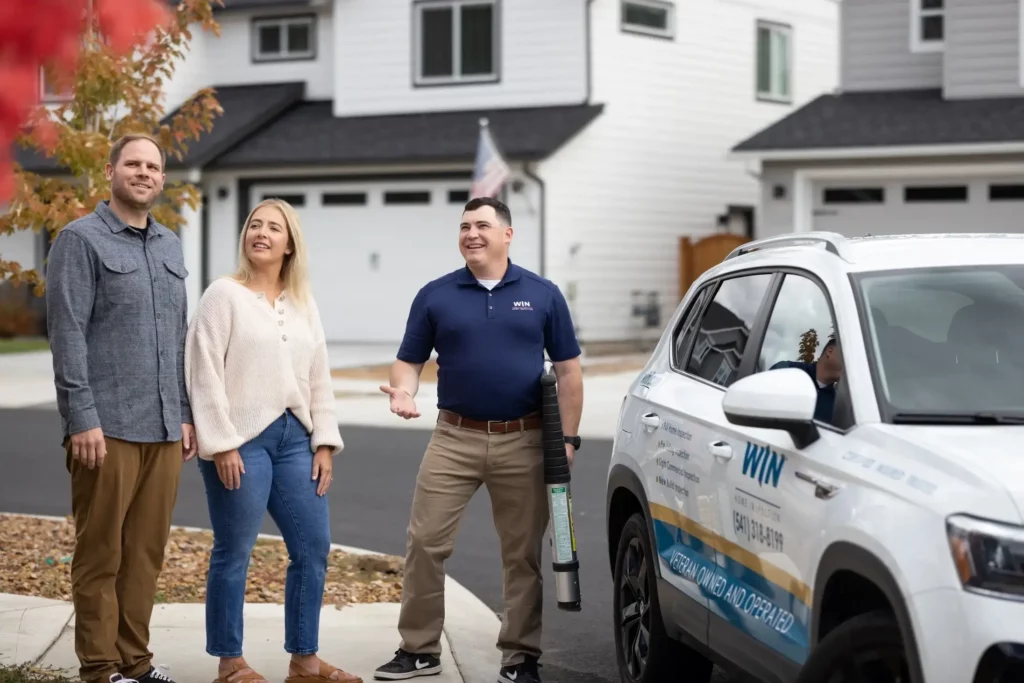Ready to Embark on an Exciting Journey with WIN?
Take the first step toward personal and financial freedom by filling out the interest form. One of our franchise advocates will be in touch with you soon!

As home buyers become more cautious and sellers try to avoid surprises, you can expect growing demand for home inspectors. In 2025, the demand for qualified home inspectors continues to rise as the housing market stays active and homeowners place greater value on safety, quality, and peace of mind.
Whether you’re exploring a new career or looking to build your own business, now is a great time to consider becoming a home inspector.

Home inspectors are trained to evaluate a home’s overall condition and safety. Their job requires taking a close look at a home’s condition — from the roof to the foundation — and point out any issues that might need attention. They check things like the structure, electrical systems, plumbing, HVAC, and roofing. They can even find signs of mold or water damage.
On a typical day, home inspectors conduct detailed examinations of property interiors and exteriors. A home-inspection checklist usually includes items like:
The goal is to assess the condition and safety of the home’s major systems to create a clear, detailed report that helps clients make informed decisions.
Home inspections are important for both buyers and sellers. Buyers want to know exactly what they’re getting before making big investments. Sellers often get inspections before listing homes so they can avoid surprises and build trust with potential buyers.
Yes, there is strong demand for home inspectors, and it’s growing every year.
More people are buying, selling, and investing in homes. Professional home inspections are important for every single transaction. Buyers want to protect their investments, and sellers want to show that their homes are in good condition. Only reliable, third-party home inspectors can provide accurate reports that benefit everyone involved.
Technological advancements and increasing consumer awareness are driving growth in the home inspection industry. According to Business Research Insights, the global residential home inspection market was valued at around $1.31 billion in 2024. It’s projected to reach $2.73 billion by 2033, expanding at 9.1% annually over the next decade.
Technological innovations like AI and drone usage are revolutionizing inspection processes, while specialized services such as mold assessments and sewer scope inspections are gaining popularity.

Several key trends are coming together to drive the growing demand for home inspectors in 2025.
Today’s homebuyers and sellers understand the long-term value of professional home inspections. They know that inspections safeguard their investments and help avoid costly surprises. That makes inspections essential in almost every real estate transaction.
Homes are becoming increasingly sophisticated as owners and developers add features like:
Inspectors should know how to verify that these complex systems operate safely and effectively.
Additionally, older homes, which make up a significant portion of the market, need thorough evaluations to detect safety and structural issues early. By discovering those problems as soon as possible, sellers and owners can save money on needed repairs.
Buying a home is the largest financial decision many people make. Today’s homebuyers are cautious and want assurance that they’re investing in safe, structurally sound properties free from major defects. A thorough inspection provides this peace of mind, further fueling the demand for professional home inspectors.
With 1.32 million new home construction projects projected for 2025, demand will grow for inspectors with experience reviewing newly built properties. There should be consistent opportunities for inspectors since each newly constructed home requires multiple inspections to ensure adherence to building codes, quality standards, and overall safety.
Whether you’re looking for job security, independence, or long-term growth, the home inspection industry offers flexible career options. Here are three common paths for aspiring home inspectors:
Many new inspectors begin their careers by joining existing inspection companies or real estate groups. This path provides steady work, fewer startup costs, and opportunities to learn from seasoned professionals. You’ll gain valuable field experience, learn about client expectations, and get to focus on doing inspections while the company handles marketing and scheduling. It’s a great option if you’re just starting or prefer a team environment.
Starting your own inspection business might be a good fit for entrepreneurial people who enjoy working independently. You’ll have the freedom to set your schedule, choose your service area, and build your brand. While this route requires more upfront effort, it gives you control over your income and growth. A lot of home inspectors start solo and gradually expand their operations by hiring employees and serving larger areas. Keep in mind that starting a home inspection business means you’re responsible for everything from licensing to marketing. You can build a successful business, but it takes a lot of planning and hard work.
Opening a home inspection franchise is a good way to get support while setting your own schedule. Franchise owners benefit from training, business tools, marketing materials, and brand recognition that help them succeed. Some franchises even offer ongoing coaching, tech support, and access to a broad network of peers who can help you avoid common mistakes.
WIN Home Inspection is a top-ranked franchise known for its innovative technology and strong support system. WIN provides hands-on training, marketing tools, and ongoing business support, making it easier for new inspectors to start and grow. If you’re looking for a structured path with built-in resources, opening a franchise with WIN is a smart way to enter the industry.

Earnings in the home inspection field can vary based on experience, location, and how you choose to work. On average, entry-level home inspectors earn between $40,000 to $55,000 per year. More experienced inspectors can make $70,000 to $100,000+ annually. Some successful business owners or franchise operators even cross the seven-figure mark in annual revenue.
Where you work plays a big role in the amount of money you can earn. You can usually charge more for inspections when you work in areas with busy real estate markets or high costs of living. Your income will also depend on whether you work full-time or part-time and how many inspections you complete per week.
Expanding the services you offer is one of the best ways to increase your income. Many inspectors make more money by adding specialized services like:
These add-ons make you more valuable to homeowners and buyers. Offering them could also make it possible for you to charge higher fees for each job.
If you’re thinking about a new career path, home inspection offers a rare combination of low barriers to entry and long-term potential.
Getting started as a home inspector is relatively quick and affordable. You can complete most training programs within a few weeks. Plus, the start-up costs are much lower than opening a traditional business, especially if you already have a basic understanding of homes or construction.
There’s also plenty of flexibility since you can work independently, join an established company, or open a franchise. Whether you’re looking for a full-time career or part-time work with a flexible schedule, home inspection can fit your lifestyle.
The demand for skilled home inspectors should keep rising as long as the housing market stays strong and consumer awareness grows. It’s a stable, rewarding profession that lets you help people make informed decisions while building a career on your own terms.
If you’re interested in real estate and helping people, home inspection could be the perfect career for you. The field blends technical knowledge with real-world impact. Every inspection helps someone make a smart, informed decision. It’s an important job suited for focused, detail-oriented professionals.
The demand for home inspectors is growing. Whether you choose to join a company, start your own business, or explore a franchise opportunity, there’s room to build a stable, fulfilling career. With the right training, you can start working in an industry that offers flexibility, growth, and a chance to make a difference.